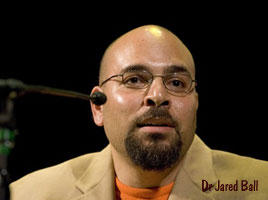
Sister Souljah always drops jewels for us to marinate on. In the mid 90s she came by Oakland’s McClymonds High School for the Nommo Lecture series and gave us lots of mental food. This is an excerpt where she talks about the definition of an African woman trying to survive the storm of America..
Return to Davey D’s Hip Hop Corner









 This week’s “redux” featured a journalist roundtable discussion of
This week’s “redux” featured a journalist roundtable discussion of  President Obama will nominate Judge Sonia Sotomayor of the United States Court of Appeals for the Second Circuit as his first appointment to the court, officials said Tuesday, and has scheduled an announcement for 10:15 a.m. at the White House.
President Obama will nominate Judge Sonia Sotomayor of the United States Court of Appeals for the Second Circuit as his first appointment to the court, officials said Tuesday, and has scheduled an announcement for 10:15 a.m. at the White House.